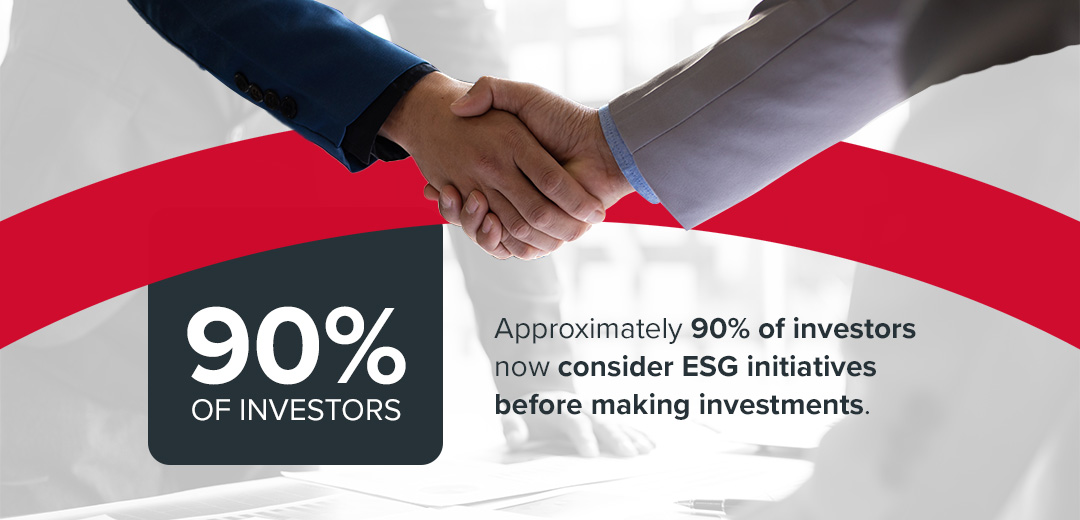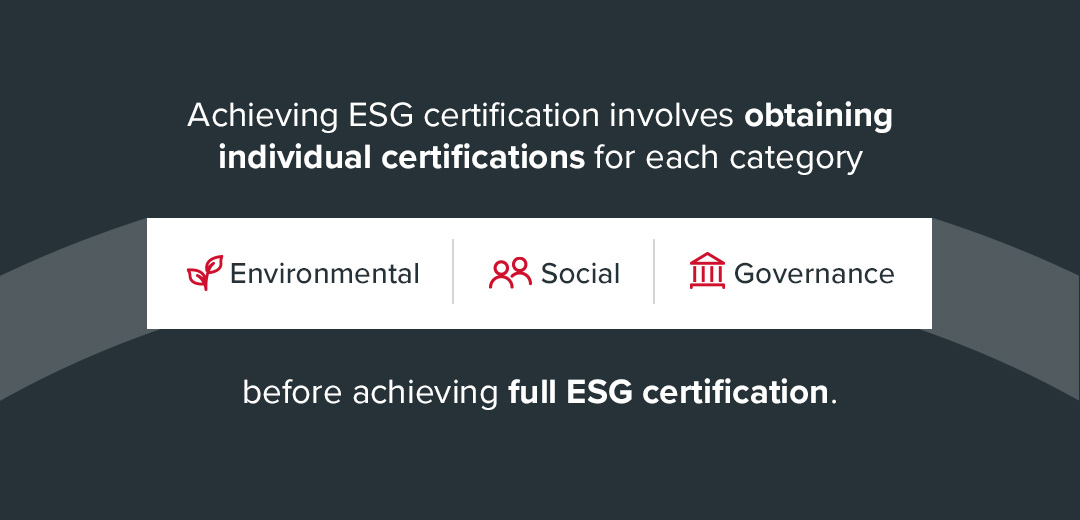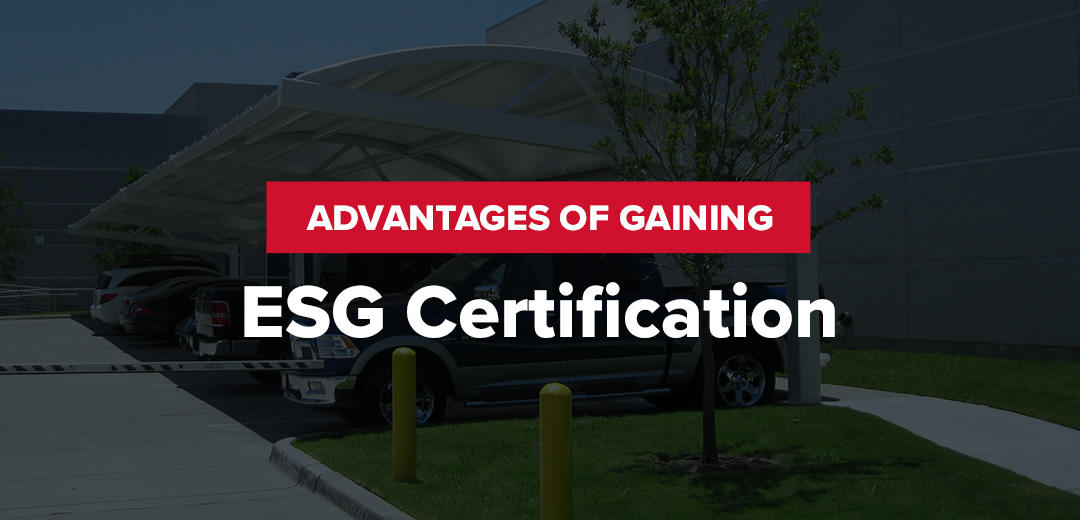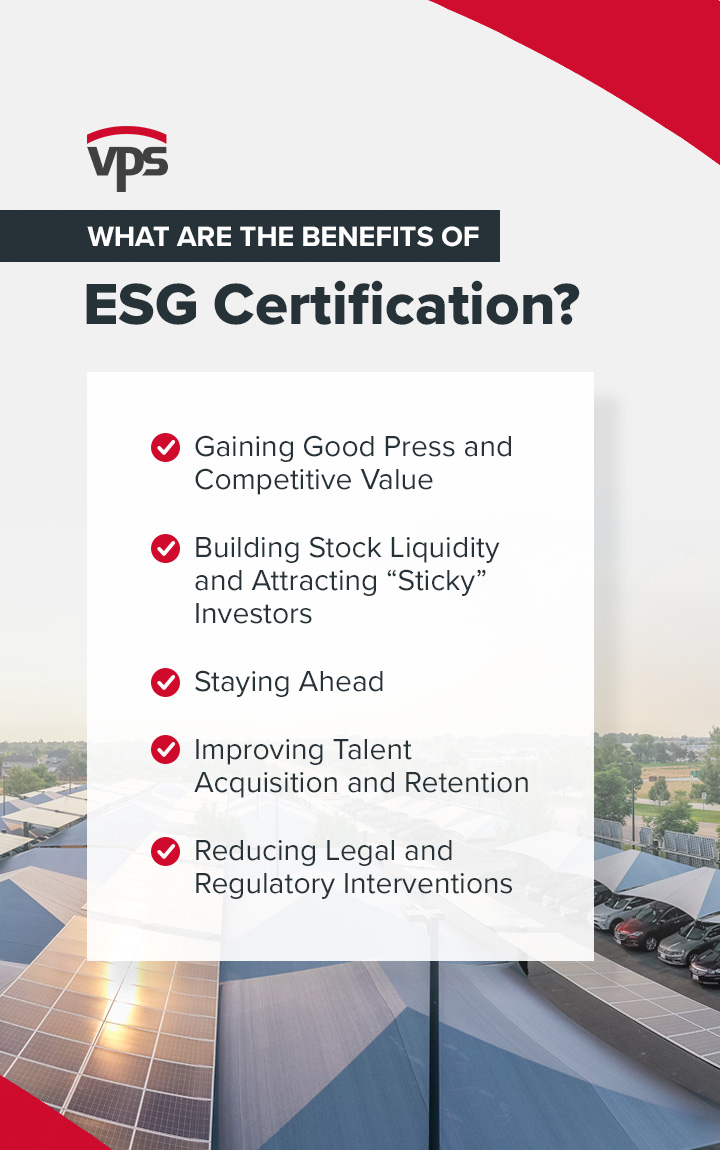Today’s investors, consumers, and employees want to work with responsible, ethical companies. To find out where a business stands, they often look to its environmental, social, and governance (ESG) initiatives.
Companies with strong ESG programs can reap the benefits because stakeholders recognize them as more sustainable and likely to succeed in the long term. Additionally, they often see higher profitability and revenue growth, positive environmental impact, and improved employee morale.
One of the best ways to prove commitment to ESG is to become certified. ESG certification is a comprehensive process, but it has a lot to offer, so let’s take a closer look.
What Is ESG Certification?
ESG certification is a third-party confirmation that a company meets the highest environmental, social, and governance standards. It’s an investment and corporate governance framework for businesses to evaluate and declare their level of sustainability and corporate responsibility.
ESG certification for companies demonstrates proficiency in delivering definable results to consumers, employees, investors, government, and regulatory bodies. It helps businesses gain the trust and confidence of stakeholders, making them more competitive in their industries.
The certification typically comes from SGS, a global leader in sustainability and ESG across all industries. They assess and audit your business against ESG risks using the following standards:
- Environmental: The environmental standards consider a company’s environmental impact by assessing its greenhouse gas emissions, energy management practices, waste management strategies, green energy initiatives, pollution, biodiversity, water usage, biodiversity, and carbon footprint.
- Social: In the social category, they assess frameworks for fair work practices, workplace safety, diversity and inclusivity, employee welfare, and information security.
- Governance: Governance standards guide fair and ethical business practices, including anti-bribery, corruption, executive pay, board diversity, political contributions, and lobbying management strategies.
Other parts of certification include topics like stewardship and sustainability.
ESG certification is the highest level of ESG compliance, but businesses can start with verification. ESG verification provides risk and materiality evaluation, due diligence, report assurance, and data verification from an independent party. Although verification isn’t as comprehensive as certification, an external party’s opinion or verification statement can still boost stakeholder confidence and trust.
Why Is ESG Certification Important for Companies?
To succeed in today’s highly competitive business environment, companies need more than high-quality products and services. They must prove to consumers and future investors that they’re committed to sustainability and social responsibility.

According to recent reports, approximately 90% of investors now consider ESG initiatives before making investments, and a staggering 88% of consumers show more loyalty to businesses that invest in social and environmental issues. ESG certification can also determine employee turnover. A Deloitte survey reveals that 49% of Gen Z and 44% of millennials admit to making career choices based on their personal ethics.
ESG certification demonstrates a positive response to the ongoing climate crisis and up-to-date legal requirements surrounding diversity, inclusion, and equality. Stakeholders appreciate and reward companies that contribute to a healthy planet and fight against social injustice while working toward economic growth. Finally, companies that pursue ESG goals inevitably become well-run, making future-proof investments, contributing to stable economic growth, and supporting the long-term health of financial markets.
How to Achieve ESG Certification

Achieving ESG certification involves obtaining individual certifications for each category — environmental, social, and governance — before achieving full ESG certification. The process involves a company evaluating material information on sector, regional, internal, and external ESG risks. Once risks are identified and mitigated, an audit is in order.
The process begins with selecting the certifying organization that best aligns with the company’s industry and operations. As mentioned, SGS is a global leader in ESG certifications for businesses in all industries. Other options include the International Association for Sustainable Economy (IASE) or industry-specific bodies like the Task Force on Climate-Related Financial Disclosures (TCFD) and the Sustainability Accounting Standards Board (SASB).
The certification process typically depends on the program, but all of them generally require organizations to meet the following standards. Findings under each of these considerations must be well documented to assist in the certification process.


